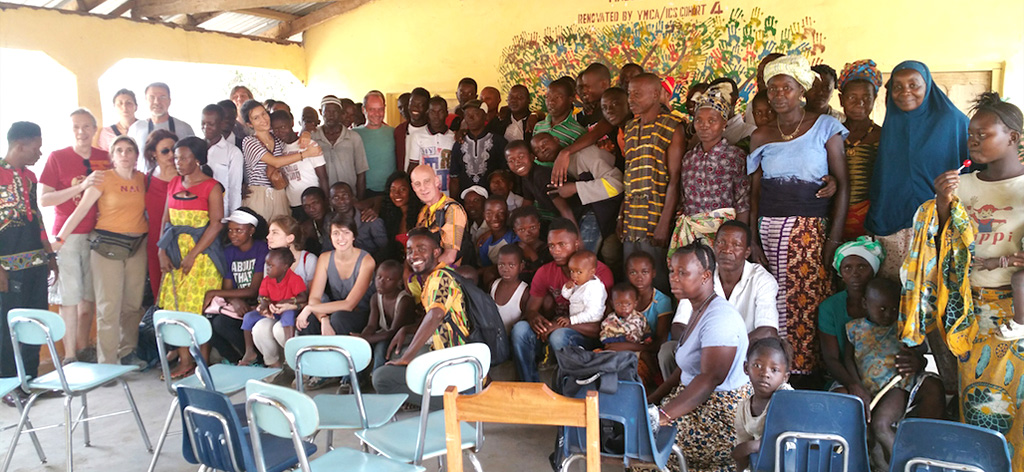
“Weaving Networks in Makeni” realized its first expedition to Sierra Leone

The project ‘Weaving Networks in Makeni’, one of the two winners of ICUSTA´s Solidarity Fund, is being driven forward with great enthusiasm by the CEU Universities San Pablo and Cardenal Herrera. Last January a team of fifteen professors, students and collaborators from these institutions traveled to Sierra Leone.
During their stay in Makeni, the team of volunteers met with the higher authorities of the University of Makeni and with the Chief Administrator of the City Council in order to coordinate activities. Afterwards, they visited St. Joseph´s School for the Hearing Impaired, the Sierra Leone Opportunities Industrialization training Centre (SLOIC), the artisan Big Market and the María Inés Vocational Institute in Lunsar. Also, they held meetings with Spain´s honorary consul in Sierra Leone and with the Director of Marketing of the Ministry of Tourism. Similarly, the group was received in City Hall by the Mayor and also by the Paramount Chief (the highest traditional authority) of the zone, in order to project the support for the processes of urban planning in Makeni. The trip included an excursion to Freetown, the capital, and there meetings were held with other institutions (World Bank, Caritas, Consulado, etc.) to promote the beginning and consolidation of the collaborations.
In the fieldwork, the Spanish volunteers were distributed into groups with students and professors of the University of Makeni and with previously chosen local inhabitants for a house by house data recollection in the neighborhood of Masuba. Also they visited primary schools, where they delivered learning materials and drawings, gave support to improve the furnishings, and gave painting workshops to the children. In Holy Spirit Hospital and Macbenthe Hospital technical advice was given in the areas of Orthopedics and Physical Therapy.
However, the principle objective of this first expedition was the assessment which will serve as the basis for the following phases of the project. Thus, the trip allowed the team to detect the needs of the neighborhood of Masuba; to identify some local partners, the available raw material and the status of the local artisanal weaving; to establish the priorities of social support for some of the city´s schools; and to detect the health care and training needs of three local hospital facilities.
In the words of Luis Perea, the coordinator of the project ‘Weaving Networks in Makeni’, “This project confronts us with a reality very different from ours. A hard reality that struggles daily for food, that still lives in a prolonged insecurity, that calls for help at every corner. To change the situation in the short term is not possible and to think otherwise would be naïve. But to help, to accompany, to work together, to teach, to learn, to share, to hope, to feel, to unite is the essence of the collaboration that continues to move forward”.
For Elena Cebrián, volunteer and professor of the Faculty of Humanities and Communication Sciences, it is an experience about “approaching the Sierra Leonean reality, understanding it, and being challenged in our fields; a reality the contact with which leads to contribute to development and the common good”.
Another of the volunteers, the architect Daniel Pérez Arnaud, affirmed, “The CEU is leaving recognizable and recognized footprints in the development of the city of Makeni and in the search for a better future for its habitants.”
During the next trip to Makeni, in the month of July, the team will present the materials and the results of the first stage and put into practice some of the planned activities.
Media
